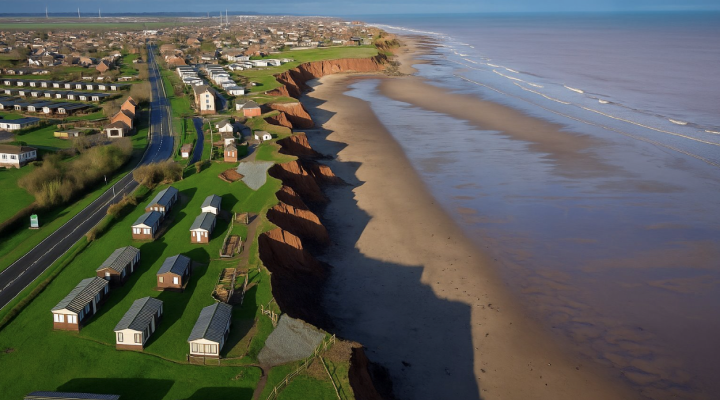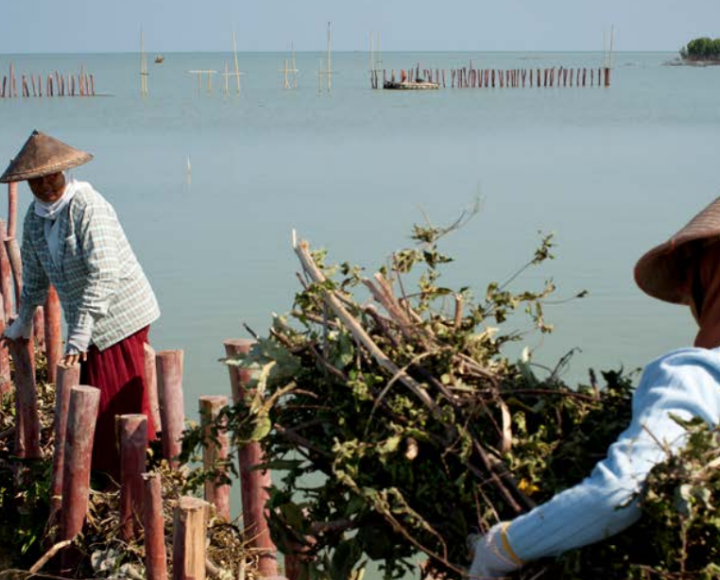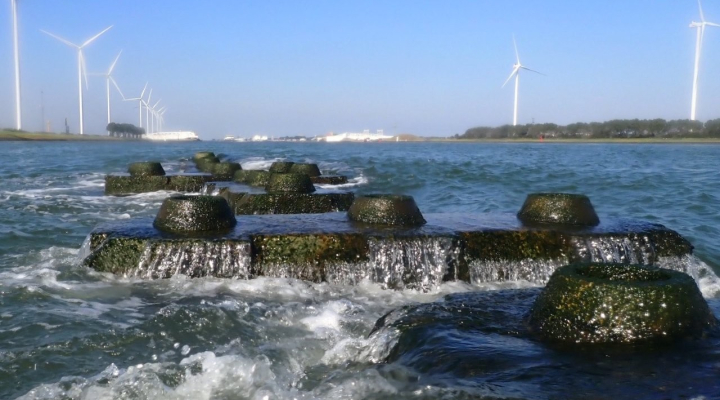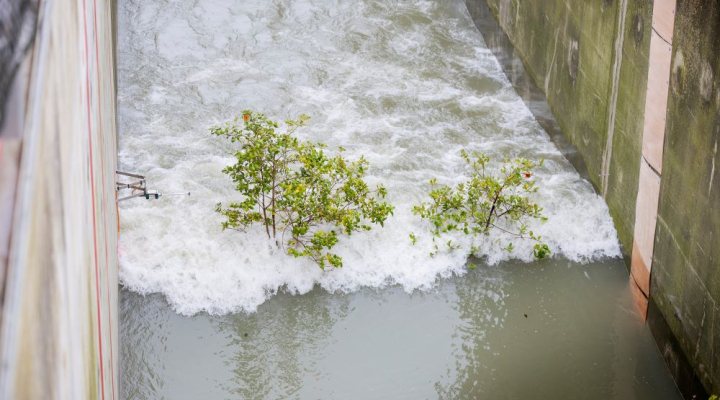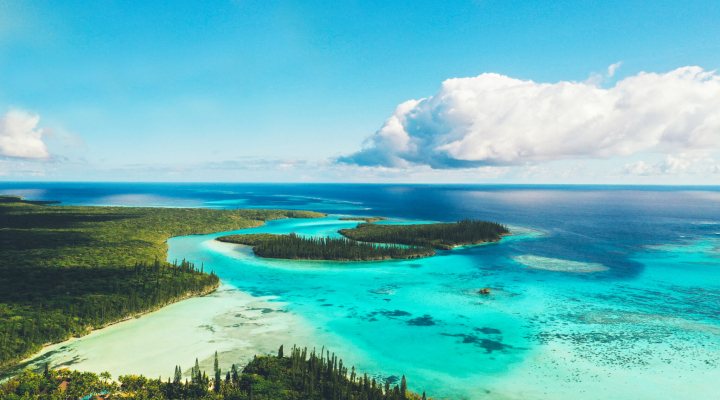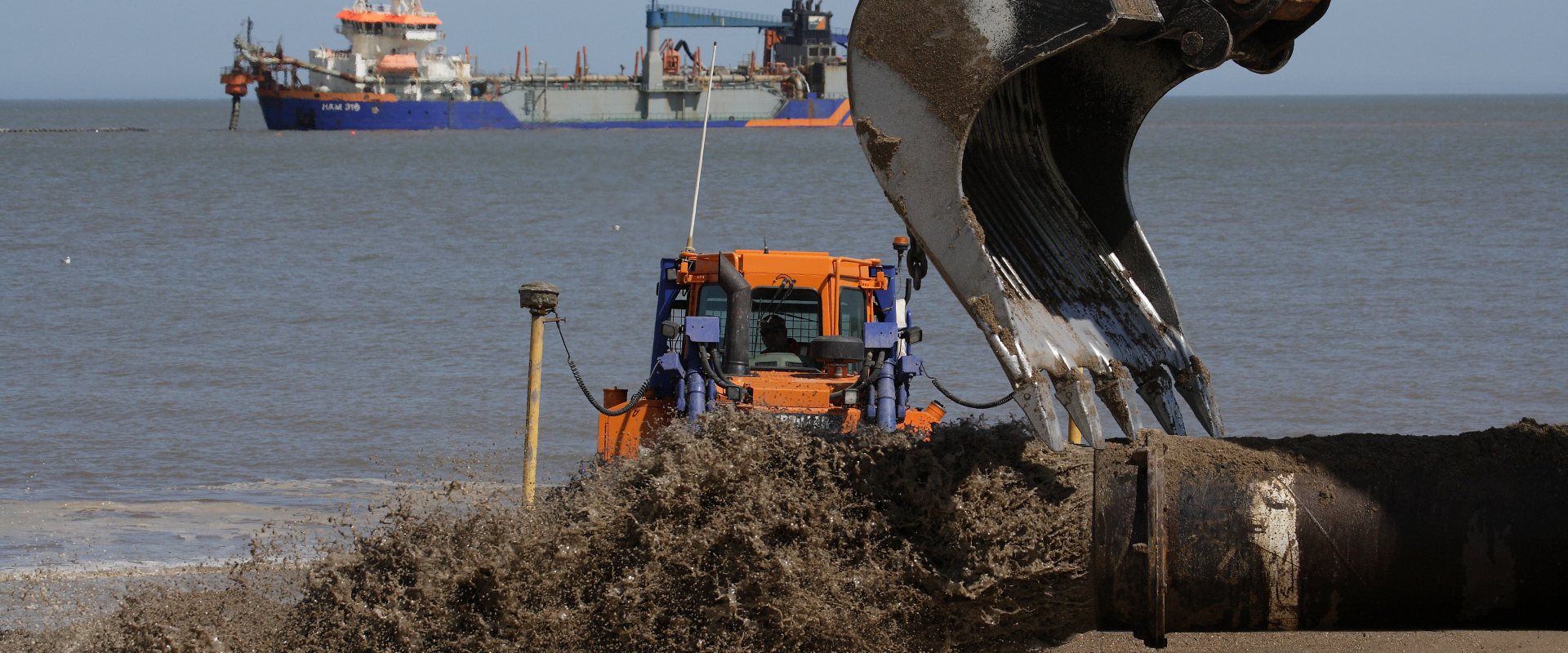
Biofuel-powered dredger HAM316 to continue beach nourishments in UK
Dredging firm Van Oord has been contracted by the Environment Agency to continue to protect the Lincolnshire coast of the UK for the next four years. For these nourishments, Van Oord will continue to deploy its trailing hopper suction dredger HAM 316 that is powered by biofuel.
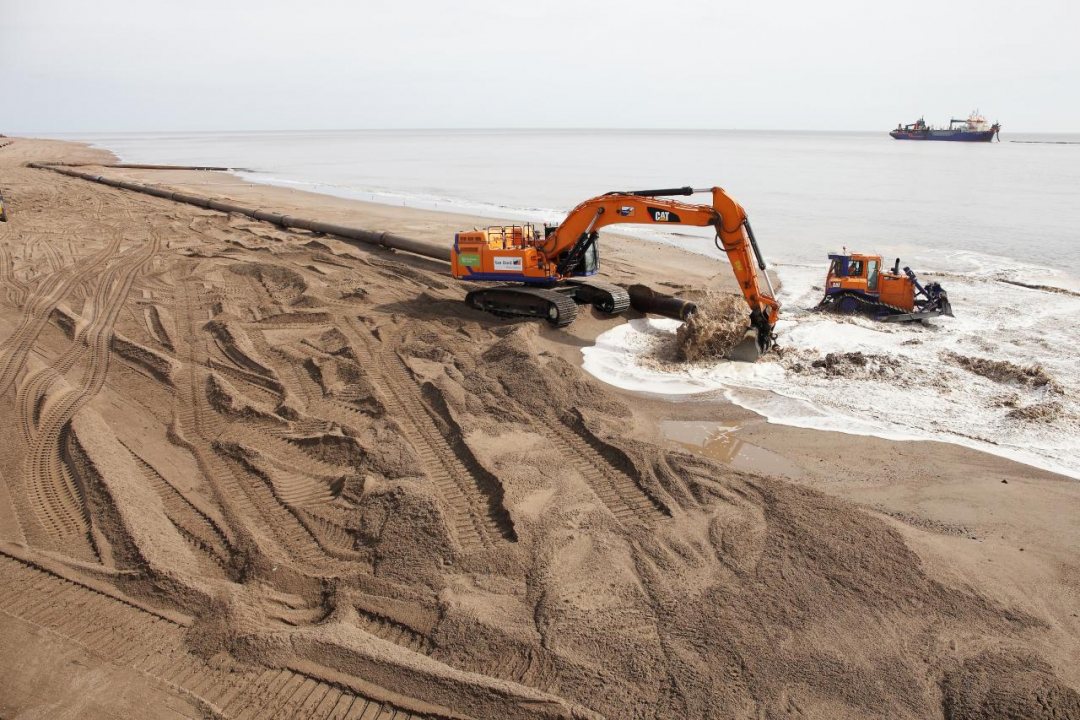

Zero carbon emission
The contract encompasses beach nourishment over the length of 20 kilometres and requires around 400,000 cubic metres of sand each year. The assignment is a continuation of the works Van Oord has been undertaking in the UK since 2015. Therefore the presence of the HAM316 has become a familiar sight along the coast of Lincolnshire.
In line with the client’s aim to achieve net zero carbon by 2030, trailing suction hopper dredger HAM 316 will be using a sustainable biofuel during the first campaign in 2021. The feedstock for the biocomponent of the fuel is primarily used cooking oil.
Regional managing director UK, Paul Hesk, at Van Oord: ‘I am delighted that the Environment Agency has chosen Van Oord as its partner for the next four years. We look forward to working together to implement their new strategy for defending this coastline and, by realising sustainability gains whilst doing so, assisting them to achieve their goal of net zero carbon by 2030.’
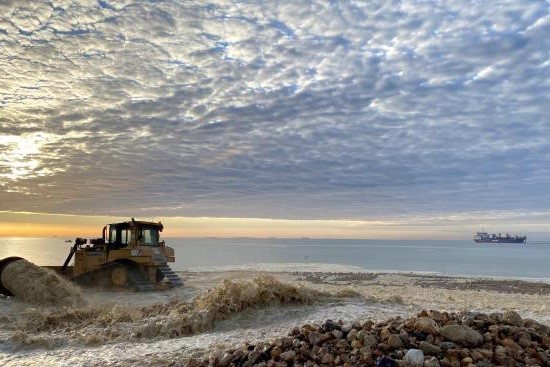

Lydd sand scheme
The contract for the Lincolnshire coasts follows a few days after Van Oord signed a contract with the Environment Agency for the Lydd Ranges Coastal Defences scheme, along the Kent coast. This work includes 320,000 cubic metres of shingle beach nourishment, the construction of 34 timber groynes, rock armour protection and other flood risk management related asset improvement and replacement works.
This beach nourishment operation is scheduled for summer 2022, once the timber groynes have been completed.




